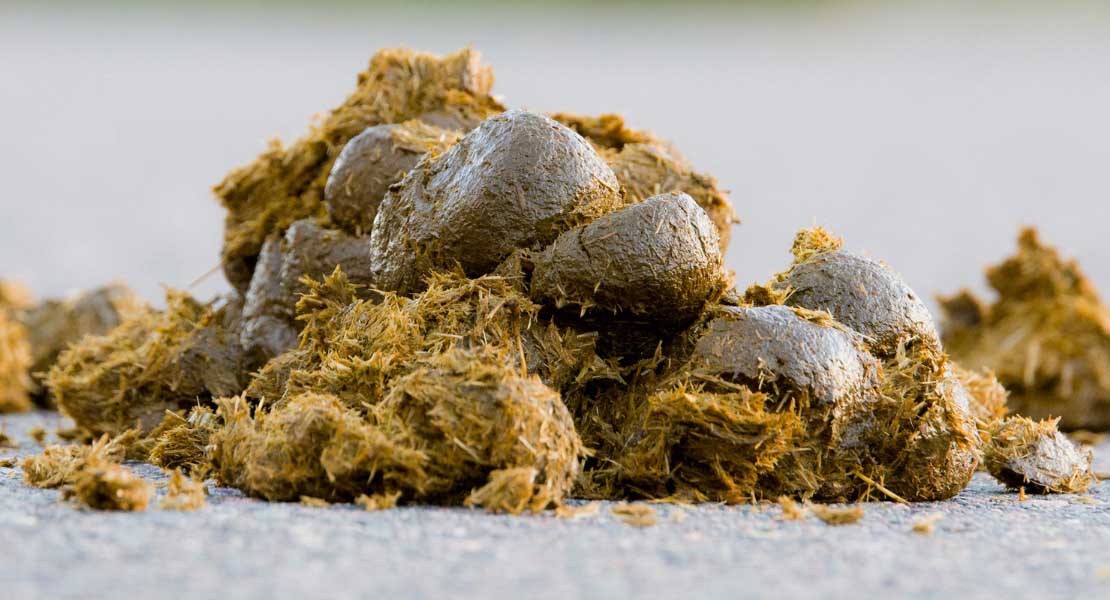
7 Reasons Your Horse's Manure Is Thin and Watery
Did you know that the consistency of your horse’s manure can tell you a lot about his health?
If your horse’s manure is thin and watery, there could be many potential causes.
Read on to find out why your horse might have thin manure.
1. Poor Diet
One of the most common reasons for thin manure is a poor diet.
Horses need a balanced diet in order to maintain their digestive health, so make sure you are providing them with plenty of vitamins, minerals, and fiber.
If your horse is not getting enough nutrients from his food, it will produce thinner manure as it struggles to absorb what little nutrition is available.
But did you know that when your horse has a poor gut flora, this can lead to your horse not being able to absorb all the nutrients from his food?
So it could be that you're giving your horse a good, balanced diet, but that your horse is unable to absorb all the nutrients.
2. Worms
Parasites such as worms can cause horses to have thin manure. If your horse has been infected by worms, they will suck up essential nutrients from its food before it has a chance to digest them properly.
This can lead to poor nutrient absorption and thinner stools than normal. It’s important to deworm your horse regularly in order to keep parasites at bay and ensure its digestive system stays healthy.
GastriPro supports the intestinal flora so your horse will beter absorb the nutrients from his diet.
✔ To support the acidity (ph) in the stomach
✔ To maintain an optimal weight
✔ To promote digestion and support intestinal flora
3. Stress
Stress can manifest itself in many ways in horses, including thin manure production. An increase in stress hormones such as cortisol can affect digestion and reduce the amount of nutrition that is absorbed from food, leading to thinner feces than normal.
Make sure you provide plenty of mental stimulation for your horse by playing games or taking long walks together; this will help keep stress levels down and promote better digestive health overall!
4. Illness
Illness or disease can also cause horses to produce thin manure as their bodies struggle to fight off infections or process toxins in their systems.
If you notice any changes in your horse’s behavior or appearance that indicate illness (such as depression, weight loss, or lethargy), take them to the vet immediately so they can get the proper treatment they need!
Sand may be the reason why your horse has thin manure
5. Sand
When your horse stands on sandy grounds such as a paddock, sand can stay behind in the body of your horse which may be the reason why your horse has thin manure.
Is your horse out in the field? When the grass is very short, your horse will eat more sand during grazing as well.
To avoid thin manure and sand colic, it's wize to check the manure of your horse for sand and to feed a sand cure every season.
6. Medication
Certain medications may also affect how much nutrition is absorbed from food which leads to thinner stools as well; always check with your vet before administering any medication just in case this could be an issue for your particular animal!
7. Poor Gut Flora
Poor gut flora can lead to digestive problems, thin manure and can affect the horse's overall health.
To maintain healthy gut flora, it's important to provide horses with a balanced diet, minimize stress, and limit their exposure to antibiotics when possible.
To improve the gut flora of your horse, probiotics and prebiotics can also be used to help support healthy gut bacteria. GastriPro contains natural probiotics and alge that support the balance of the gut and help your horse to get rid of thin manure.
There are many potential causes for why a horse might have thin manure production and poor gut flora.
Does your horse already have thin and watery manure?
In that case it may be difficult for your horse to get enough nutrition from his diet, this can cause a dull coat, lack of energy, difficulty to maintain a good weight and other health issues.
It’s always best to seek professional advice when dealing with equine health issues, so don’t hesitate to contact your vet if you think something more serious could be going on with your horse!
Support your horse with GastriPro:
a natural source of probiotics and alge
✔ To support the acidity (ph) in the stomach
✔ To maintain an optimal weight
✔ To promote digestion and support intestinal flora

